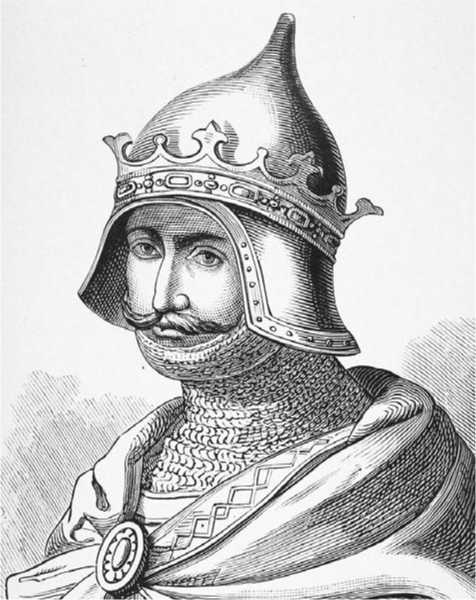He would not have long to enjoy the privileges of his birth, because events soon took place that would ultimately bring about the end of his life. Troubled by corruption, long
Ashikaga Takauji

In viewing the Middle Ages, it would be hard to find two individuals more different than Boethius and Ashikaga Takauji (tah-kah-OO-jee; 1305-1358), who founded a dynasty of Japanese shoguns, or military leaders. The comparison is worthwhile because both men were members of their countries' noble classes; but whereas Boethius was accused of treason in his lifetime and was believed innocent by later generations, Ashikaga is remembered as, among other things, a traitor. Furthermore, Boethius's life was defined by his ability to suffer injustice in silence, whereas Ashikaga took action against what he considered an unjust situation.
This contrast is particularly interesting in light of what many people believe about Western civilization, of which Boethius was a part, in contrast to the Eastern civilizations of Japan, China, India, and
Other countries. According to this line of thought, the Eastern tradition is characterized by silent submission to one's fate, whereas the West is more associated with the idea of taking action to correct perceived wrongs. In the case of Boethius and Ashikaga, exactly the opposite was true.
Though Japan was formally under the control of an emperor, the real power lay in prominent families such as the Kamakura, who established the first of two shogunates that were to control the country off and on between 1192 and 1573. Ashikaga founded the second of these shogunates, but not before he helped bring down the Kamakura in a somewhat underhanded way.
Typically, Japanese emperors were children who were easily manipulated by the shoguns and powerful families, but in 1318, a full-grown adult named Go-Daigo
A factor in the Roman government, Boethius made enemies in high places when he tried to protect honest men from attacks by greedy and power-hungry leaders.
His real misfortune began, however, in 522, when he came to the defense of a senator accused of treason. It appears that Boethius may have thought the senator guilty, but he wanted to protect the reputation of the senate, and this exposed him to charges of suppressing evidence. He was then accused of aiding Justin I, the Byzantine emperor, against Theodoric. Therefore Theodoric ordered that he be imprisoned in the town of Pavia (PAHV-ee-uh).
(goh DY-goh; 1288-1339) assumed the throne. When Go-Daigo revolted against the shoguns, they exiled him in 1331, but he escaped two years later. The leaders trusted Ashikaga to capture him, but in the process of doing so, Ashikaga made a deal with Go-Daigo.
Claiming to be a secret supporter of the emperor, Ashikaga joined forces with him to overthrow the Hojo family, who had assumed control of the Kamakura shogu-nate. Once Go-Daigo was restored to power, however, he proved an inept ruler, and offended Ashikaga by appointing his son, rather than Ashikaga himself, as shogun. In 1 336, Ashikaga ousted Go-Daigo, and replaced him with an emperor who appointed him to the all-important shogun position.
Thus was born the Ashikaga shogu-nate (1338-1573), sometimes referred to as
The Muromachi period because its cultural life centered on the Muromachi district of Tokyo. And indeed it was a time of cultural flourishing, for which Ashikaga deserves much of the credit. His place in Japanese history is somewhat uncertain, however, due in part to the fact that many scholars believe he was overshadowed by his powerful grandson Yoshimitsu (ruled 1368-95).
A greater source of controversy regarding Ashikaga, however, relates to what many consider his treacherous actions. In that vein, he is often compared unfavorably to Kusunoki Masashige (mah-sah-SHEE-gay; 1294-1336), a warlord who remained faithful to Go-Daigo and committed suicide after he was defeated by Ashikaga. Regardless of his moral stature, however, Ashikaga was undoubtedly a brilliant strategist and leader who ushered in a culturally significant era of Japanese history.
The Consolation of Philosophy
Boethius would spend the remaining two years of his life in jail, where he wrote his most enduring work, The Consolation of Philosophy. He had written a number of books before, but without the Consolation his name might well have been forgotten. As it was, he set the tone for a thousand years of European history.
Though he was a devout Christian, the Consolation is a work of philosophy and makes little direct reference to Christian principles. Its message that suffering should be endured might seem to bear a close relation to the teachings of Christ,
But Christ taught that believers in God should endure suffering with the hope of a reward in Heaven. The Consolation, by contrast, seems to say that suffering is its own reward, and in this it is more closely tied to the ancient Roman tradition of Stoicism (STOH-uh-sizm), which held that true nobility is found in withstanding hardship.

Theodoric, an Ostrogoth chieftain who came to rule Italy after killing Odoacer, imprisoned Boethius, accusing him of supporting Theodoric's rival, Byzantine emperor Justin I. Reproduced by permission of Archive Photos, Inc.
Nonetheless, the message that "Lady Philosophy" delivers to Boethius—the book is built around the idea that the spirit of philosophy came to visit him in his cell, clothed in the body of an otherworldly woman—has an underlying Christian theme. By the end of the work, Philosophy shows him that God's justice can be seen even in the most random and arbitrary-seeming misfortune. Furthermore, she shows him that although man has free will to choose good or evil (a central belief of Christianity), true freedom lies in choosing virtue.




 World History
World History









